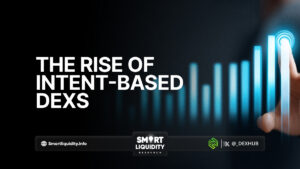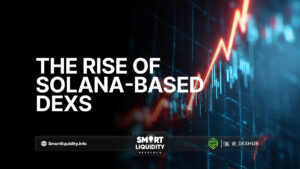Advantages of Using a Decentralized Exchange (DEX)


In the ever-evolving world of cryptocurrency, decentralized exchanges (DEXs) have gained significant popularity. Unlike centralized exchanges (CEXs), which are controlled by a single entity, DEXs operate on blockchain networks, enabling peer-to-peer transactions without an intermediary.
Here are several key advantages of using a DEX.
Firstly, security is one of the biggest draws. In centralized exchanges, users must trust a third party to safeguard their funds. However, DEXs allow individuals to retain full control over their assets, reducing the risk of hacking or exchange insolvency. Since the user’s private keys never leave their wallet, there is no central point of failure.
Moreover, privacy is another notable benefit. On DEXs, there is no need to create an account or share personal information. Transactions are typically pseudonymous, offering users greater confidentiality. This appeals to individuals who value privacy or wish to avoid the potential for data breaches that can occur on centralized platforms.
Additionally, lower fees are often associated with decentralized exchanges. Without the overhead costs of managing a centralized platform, DEXs can offer competitive fee structures, sometimes as low as a fraction of a percent. Furthermore, users can avoid the risks of hidden fees that are sometimes imposed by centralized exchanges.
Another significant advantage is global accessibility. DEXs are accessible from anywhere, with no geographic restrictions. This inclusivity is particularly beneficial in regions where access to traditional financial systems is limited or where users are subject to strict regulatory constraints.Finally, greater control over trades is a major benefit. DEX users can trade directly from their wallets, without relying on a central authority to facilitate or settle transactions. This autonomy enhances the overall trading experience, giving users more flexibility.
Finally, greater control over trades is a major benefit. DEX users can trade directly from their wallets, without relying on a central authority to facilitate or settle transactions. This autonomy enhances the overall trading experience, giving users more flexibility.
In conclusion, decentralized exchanges offer numerous advantages, including improved security, privacy, lower fees, global access, and greater control. As blockchain technology continues to evolve, DEXs are expected to play a pivotal role in shaping the future of digital asset trading.




